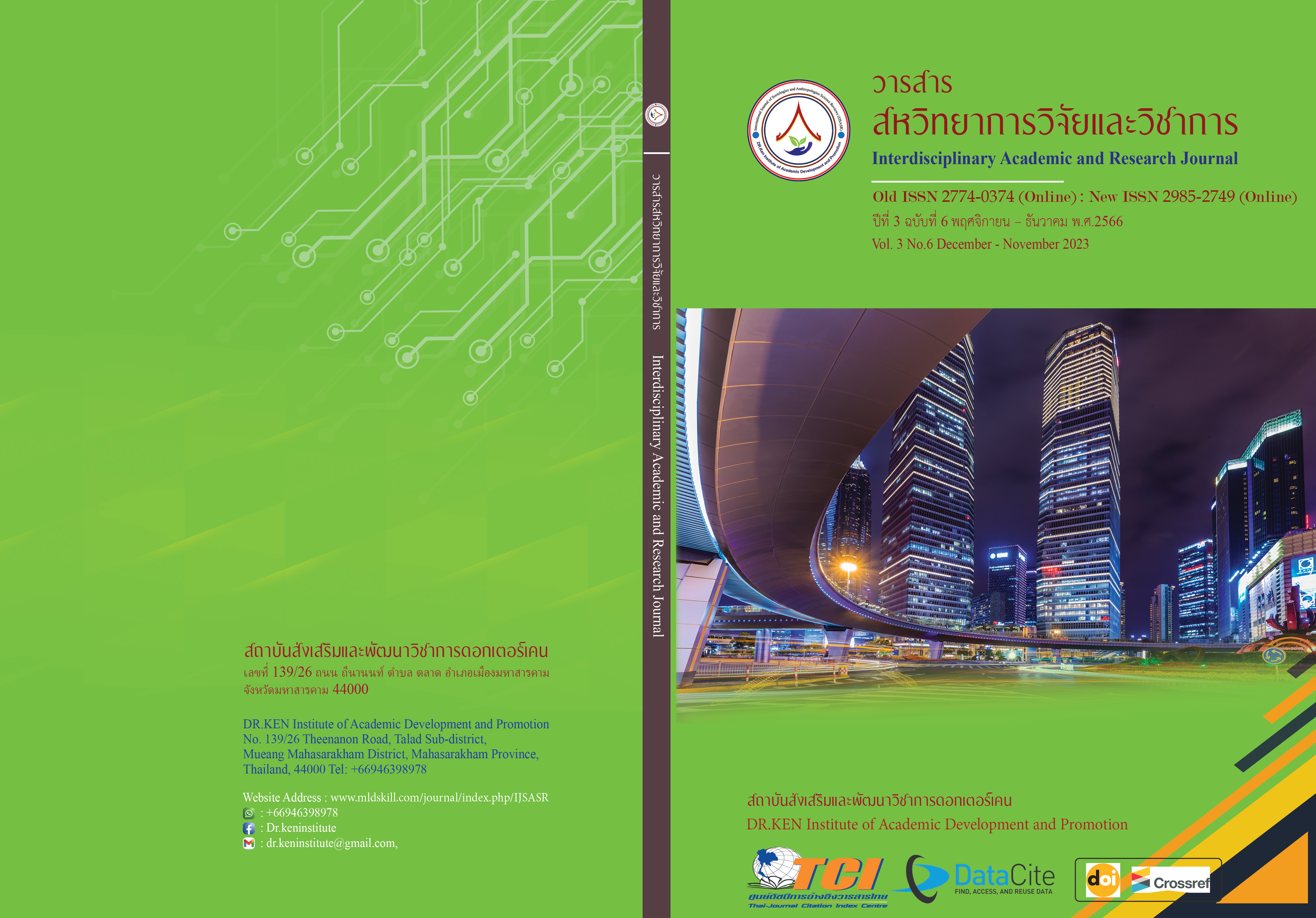Solving Education Problems Through Research Process
DOI:
https://doi.org/10.60027/iarj.2023.271407Keywords:
Problem Solving; , Education; , ResearchAbstract
Background and Aims: Solving educational problems through the research process is very important to help raise the quality of students in terms of behavior, knowledge, and desired characteristics of learners. In order to do research, the researcher must have deep research background knowledge in the research process. The purpose of this study is to analyze the solution of educational problems through the research process.
Methodology: This study used document analysis and related research methods. Analyze the content and present it descriptively according to the study objectives.
Results: The research process to solve educational problems consists of 8 steps. Including 1) determining the research problem 2) reviewing documents, articles, textbooks, and related research 3) setting research hypotheses 4) research design 5) collecting data Data and tools used in data collection, 6) data analysis, 7) data interpretation, and 8) research report writing. initially and choose to use a research process that is appropriate for their own research to achieve research that is efficient, effective, and meets the desired objectives. and can solve problems directly. It is a guideline for promoting and developing education in accordance with the policies of the Ministry of Education. according to learning standards.
Conclusion: The research process for solving educational problems has 8 steps, including defining the problem, reviewing documents, collecting data, analyzing the data, and writing a report. It is a guideline for developing educational management according to the policies of the Ministry of Education.
References
กรมวิชาการ กระกรวงศึกษาธิการ. (2542). วิจัยเพื่อพัฒนาการเรียนรู้. กรุงเทพฯ : โรงพิมพ์ศาสนา.
กรมวิชาการ กระกรวงศึกษาธิการ. (2544). แนวการจัดกิจกรรมพัฒนาผู้เรียน ตามหลักสูตรการศึกษาขั้นพื้นฐาน พุทธศักราช 2544. กรุงเทพฯ: องค์การรับส่งสินค้าและพัสดุภัณฑ์.
ณรงค์ โพธิ์พฤกษานันท์. (2551). ระเบียบวิธีวิจัย. พิมพ์ครั้งที่ 5. กรุงเทพฯ : สเอ็กปอร์เน็ท.
นิศากร สิงหเสนี. (2546). ระเบียบวิธีวิจัยทางสังคมศาสตร์. กรุงเทพฯ: โรงพิมพ์มหาจุฬาลงกรณราชวิทยาลัย
ประทุม ฤกษ์กลาง, 2553. การวิจัยเพื่อประชาสัมพันธ์. พิมพ์ครั้งที่ 6. กรุงเทพฯ : มหาวิทยาลัยกรุงเทพ.
พรทิพย์ พิมลสินธุ์. (2551). การวิจัยเพื่อการประชาสัมพันธ์. ปทุมธานี : มหาวิทยาลัยกรุงเทพ.
วรัทยา ชินกรรม. (2566). ความหมายของการวิจัย. Retrieved 20 May 2023, from: https://www.econ.cmu.ac.th/econadmin/files/ความรู้เบื้องต้นในการทําวิจัย.pdf
สันติ วิจักขณาลัญฉ์. (2565). เอกสารประกอบการสอนรายวิชาวิธีวิทยาการวิจัยชั้นสูงทางการพัฒนาหลักสูตรและการสอน. คณะศึกษาศาสตร์ มหาวิทยาลัยภาคตะวันออกเฉียงเหนือ.
สำนักงานคณะกรรมการวิจัยแห่งชาติ. (2555). จรรยาวิชาชีพและแนวทางปฏิบัติ. พิมพ์ครั้งที่ 2. กรุงเทพฯ : โรงพิมพ์แห่งจุฬาลงกรณ์มหาวิทยาลัย.
Best, J. (1977). Research in Education. New Jersey: Prentice Hall, Inc.
Kerlinger, F.N. (1986). Foundations of Behavior Research. Japan: CBS.
Schumacher, S., & McMillan, M.J. (1993). Research in Education. 3rd Edition, New York: HarperCollins College Publishers.
Tuchman, G. (1973). Making News by Doing Work: Routinizing the Unexpected. American Journal of Sociology - AMER J SOCIOL. 79. Doi: 10.1086/225510.
Wimmer, R.D., & Dominick, J.R. (2000). Mass media research: an introduction, 6th edition. Belmont, CA: Wadsworth Publishing Company.
Downloads
Published
How to Cite
Issue
Section
License
Copyright (c) 2023 Tanaporn Saelim, Suvijuk Mansaraneeyatham, Chamrat Mungfaoklang, Suwat Asasing, Sunthon Kohtbantau

This work is licensed under a Creative Commons Attribution-NonCommercial-NoDerivatives 4.0 International License.
Copyright on any article in the Interdisciplinary Academic and Research Journal is retained by the author(s) under the under the Creative Commons Attribution-NonCommercial-NoDerivatives 4.0 International License. Permission to use text, content, images, etc. of publication. Any user to read, download, copy, distribute, print, search, or link to the full texts of articles, crawl them for indexing, pass them as data to software, or use them for any other lawful purpose. But do not use it for commercial use or with the intent to benefit any business.
















.png)


